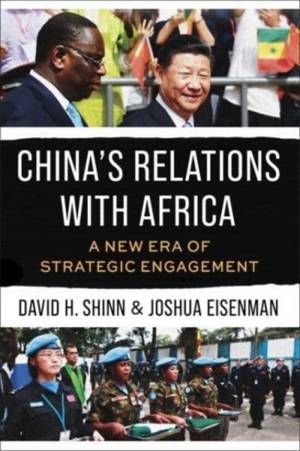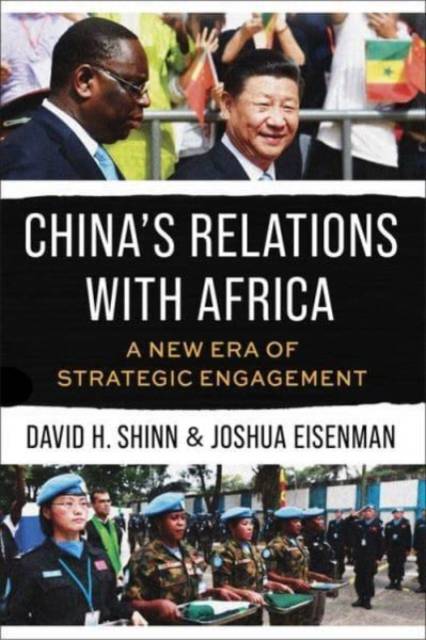
En raison d'une grêve chez bpost, votre commande pourrait être retardée. Vous avez besoin d’un livre rapidement ? Nos magasins vous accueillent à bras ouverts !
- Retrait gratuit dans votre magasin Club
- 7.000.000 titres dans notre catalogue
- Payer en toute sécurité
- Toujours un magasin près de chez vous
En raison de la grêve chez bpost, votre commande pourrait être retardée. Vous avez besoin d’un livre rapidement ? Nos magasins vous accueillent à bras ouverts !
- Retrait gratuit dans votre magasin Club
- 7.000.0000 titres dans notre catalogue
- Payer en toute sécurité
- Toujours un magasin près de chez vous
China's Relations with Africa
A New Era of Strategic Engagement
Joshua Eisenman, David H Shinn
Livre relié | Anglais
237,45 €
+ 474 points
Format
Description
Since Xi Jinping's accession to power in 2012, nearly every aspect of China's relations with Africa has grown dramatically. Beijing has increased the share of resources it devotes to African countries, expanding military cooperation, technological investment, and educational and cultural programs as well as extending its political influence.
This book examines the full scope of contemporary political and security relations between China and Africa. David H. Shinn and Joshua Eisenman not only explain the specific tactics and methods that Beijing uses to build its strategic relations with African political and military elites but also contextualize and interpret them within China's larger geostrategy. They argue that the priorities of Chinese leaders--including the conflation of threats to the Communist Party with threats to the country, a growing emphasis on relations in the Global South, and a focus on countering U.S. hegemony--have combined to elevate Africa's importance among policy makers in Beijing. Ranging from diplomacy and propaganda to arms sales and space cooperation, from increasingly frequent People's Liberation Army Navy port calls in Africa to the rising number of African students studying in China, this book marshals extensive and compelling qualitative and quantitative evidence of the deepening ties between China and Africa. Drawing on two decades of systematic data and hundreds of surveys and in-person interviews, Shinn and Eisenman shed new light on the state of China-Africa relations today and consider what the future may hold.Spécifications
Parties prenantes
- Auteur(s) :
- Editeur:
Contenu
- Nombre de pages :
- 504
- Langue:
- Anglais
Caractéristiques
- EAN:
- 9780231210003
- Date de parution :
- 01-08-23
- Format:
- Livre relié
- Format numérique:
- Genaaid
- Dimensions :
- 152 mm x 229 mm
- Poids :
- 907 g

Les avis
Nous publions uniquement les avis qui respectent les conditions requises. Consultez nos conditions pour les avis.






